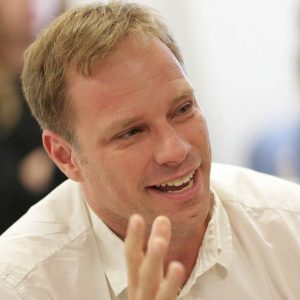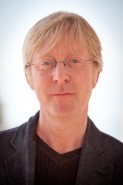February 9, 2017
“Music, Instruments, and Cognition”
February 9, 2017
4pm-6pm
Komoda Room, The Heyman Center for the Humanities
One theme that runs through extended cognition literature is that the mind is not confined to the body. Many discussions about extended cognition focus on the incorporation of tools. Extended cognition theorists are not the only ones writing about the importance of tools in making inferences about the mind. To expand the scope of this conversation, we have invited Prof. Alex Rehding (Fanny Peabody Professor of Music, Harvard University) and Prof. Brian Boyd (Department of Anthropology, Columbia University) to discuss instruments, artifacts, and what they can tell us about the minds of their users.
Our speakers have recommended the following readings:
Rehding, Alexander. “Three Music-Theory Lessons.” Journal of the Royal Musical Association 141.2 (2016): 251-282. Link
———. “Instruments of Music Theory.” Music Theory Online 22.4 (2016). Link.
Coward, F. (2016). Scaling up: Material culture as scaffold for the social brain. Quaternary International, 405, 78–90. Link
Iliopoulos, A. & D. Garofoli. (2016). The material dimensions of cognition: Reexamining the nature and emergence of the human mind. Quaternary International, 405, 1–7. Link

Alexander Rehding is the Fanny Peabody Professor of Music at Harvard University, an affiliate of the Department of Germanic Languages and Literatures, and an associate at the Center for European Studies. His work lies at the crossroads of music history and theory. His publications include Hugo Riemann and the Birth of Modern Musical Thought (Cambridge University Press, 2003) and Music and Monumentality: Commemoration and Wonderment in Nineteenth-Century Germany (Oxford University Press, 2009). While his work has focused on European music of the 19th–20th centuries, Rehding is interested in the transfer of music from non-Western contexts during different ages, using different technologies—for instance, as in the group-curated exhibition Transmission/Transformation: Sounding China in Enlightenment Europe (2011)—and more broadly in media archaeology and sound studies. Rehding holds degrees from the University of Cambridge and has received a number of fellowships and prizes, including from the Alexander von Humboldt Foundation, the American Council of Learned Societies, and the John Simon Guggenheim Memorial Foundation.
 Brian Boyd (M.A. Glasgow 1991: Ph.D. Cambridge 1996). He was previously Lecturer in Archaeology at the University of Wales Lampeter (1997-2006). Brian’s research interests focus on the archaeology of the prehistoric Levant, social technologies, human-animal relations, the history and philosophy of science, queer theory, and cultural politics in Palestine/Israel. He has been carrying out research and fieldwork in Israel and the Palestinian Territories for a number of years and is currently co-director with Dr. Hamed Salem (Birzeit University) of a project entitled “Resistance Archaeology: The Wadi Natuf Landscape Project”. He is also co-director of a digital mapping of Palestine project with Nora Akawi of the Columbia Graduate School of Architecture, Planning and Preservation (Amman Lab, Jordan).
Brian Boyd (M.A. Glasgow 1991: Ph.D. Cambridge 1996). He was previously Lecturer in Archaeology at the University of Wales Lampeter (1997-2006). Brian’s research interests focus on the archaeology of the prehistoric Levant, social technologies, human-animal relations, the history and philosophy of science, queer theory, and cultural politics in Palestine/Israel. He has been carrying out research and fieldwork in Israel and the Palestinian Territories for a number of years and is currently co-director with Dr. Hamed Salem (Birzeit University) of a project entitled “Resistance Archaeology: The Wadi Natuf Landscape Project”. He is also co-director of a digital mapping of Palestine project with Nora Akawi of the Columbia Graduate School of Architecture, Planning and Preservation (Amman Lab, Jordan).